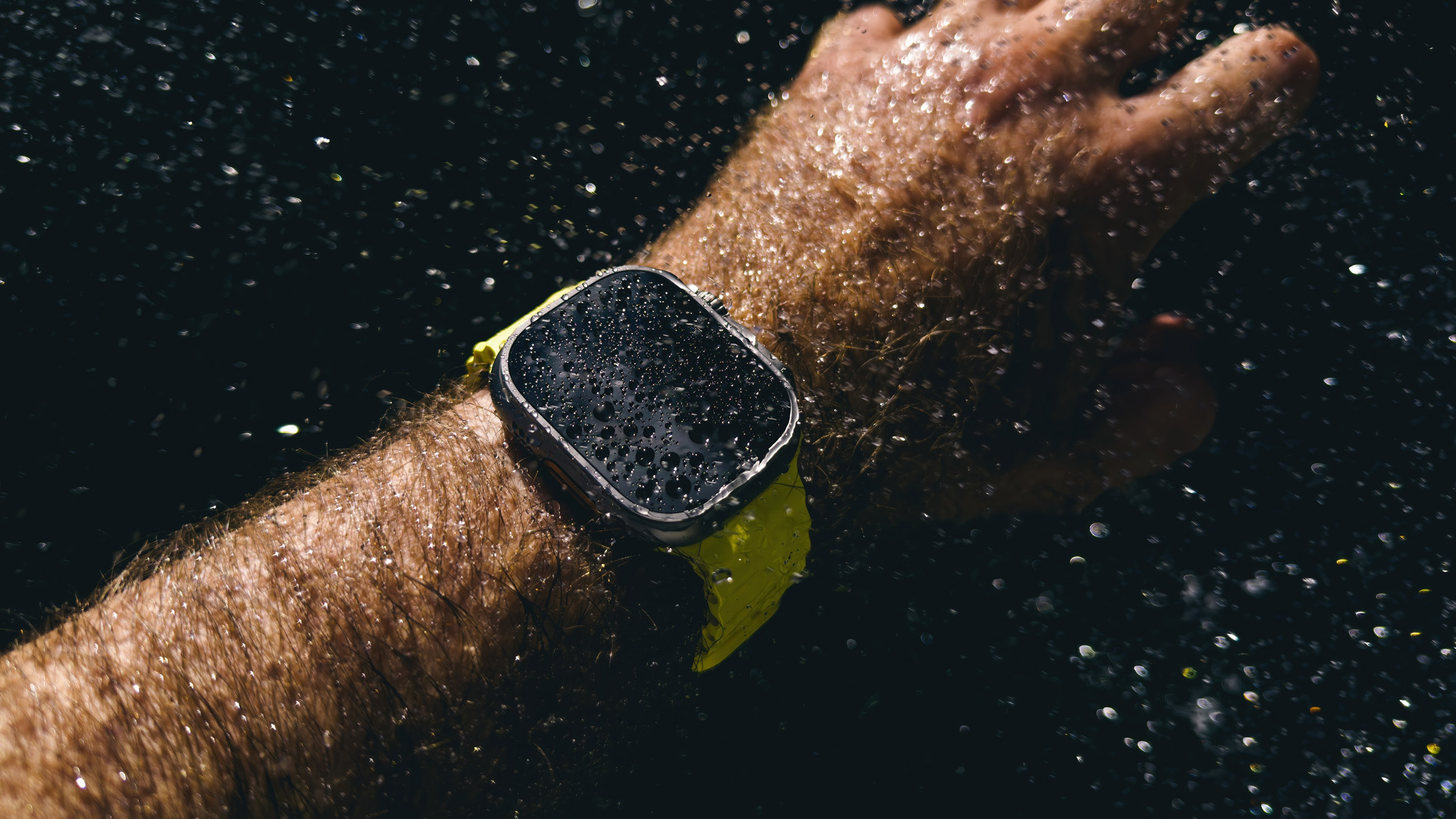A future Apple Watch could call for help if it detects someone might be drowining
Another life-saving feature.

iMore offers spot-on advice and guidance from our team of experts, with decades of Apple device experience to lean on. Learn more with iMore!
You are now subscribed
Your newsletter sign-up was successful
The Apple Watch has already been proven to help save lives thanks to its various life-saving features including Fall Detection, Crash Detection, and of course its heart monitoring technologies. But there's one area where the Apple Watch has so far not been able to help people stay safe and Apple seems set on trying to fix that.
More people die in water each year than you might think and a new Apple patent makes a note that more than 3,500 people die from drowning in the United States each and every year. That's more than nine per day, and it's the fifth most common cause of accidental death across the whole country. So with that in mind, it's perhaps no surprise that the patent suggests that Apple is working to allow the Apple Watch to help save more lives, this time by alerting emergency workers when someone might be drowning.
The patent suggests that Apple intends for the Apple Watch to be capable of differentiating between someone swimming and someone drowning and then taking action if it detects the latter. That action could come in a few different forms, including alerting lifeguards.
Lifesaver
The patent, which was first spotted by Patently Apple, says that it could potentially be capable of keeping people safe in pools, lakes, ponds, and elsewhere. Apple is targeting anywhere where other methods of keeping people safe might not be workable, with the patent saying an Apple Watch could send an alarm message to nearby devices to alert lifeguards and others that someone needs help. It's suggested that Apple Watches could hook into other pool-side alarms at public swimming pools.
Using sensor data the Apple Watch would monitor the movements and behavior of the wearer to try and discern whether they are in control or are trying to stay afloat while drowning. An alert would be sent if the Apple Watch believed the latter to be the case, although we have to imagine that Apple would configure the wearable to err on the side of caution here. That could potentially cause some false alarms, but that's surely greatly preferred to the alternative.
In terms of measurements, heart rate sensors and the monitoring of vital signs could be used, the patent suggests, but it isn't clear whether current Apple Watches may have the required hardware to make this work. Apple also mentions that machine learning models would be used to learn what constitutes unusual behavior and as such, when someone is in trouble.
Apple has made no bones about the fact that it sees the Apple Watch as a health tool in recent years, and helping to save lives is just one facet of that. The watch can already alert first responders should someone take a tumble and be unable to help themselves while those involved in traffic collisions have also been helped by an Apple Watch calling emergency services.
iMore offers spot-on advice and guidance from our team of experts, with decades of Apple device experience to lean on. Learn more with iMore!
However, as promising as this patent may seem, it's important to remember that not all patents turn into shipping products or features and that could well be the case here, too.
More from iMore

Oliver Haslam has written about Apple and the wider technology business for more than a decade with bylines on How-To Geek, PC Mag, iDownloadBlog, and many more. He has also been published in print for Macworld, including cover stories. At iMore, Oliver is involved in daily news coverage and, not being short of opinions, has been known to 'explain' those thoughts in more detail, too.
Having grown up using PCs and spending far too much money on graphics card and flashy RAM, Oliver switched to the Mac with a G5 iMac and hasn't looked back. Since then he's seen the growth of the smartphone world, backed by iPhone, and new product categories come and go. Current expertise includes iOS, macOS, streaming services, and pretty much anything that has a battery or plugs into a wall. Oliver also covers mobile gaming for iMore, with Apple Arcade a particular focus. He's been gaming since the Atari 2600 days and still struggles to comprehend the fact he can play console quality titles on his pocket computer.
